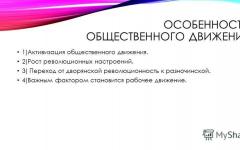OGE 2017. German language. A set of materials for preparing students. Vetrinskaya V.V.

M.: 20 17. - 9 6 p. + CD
This manual is intended to prepare 9th grade students for the Main State Exam (OGE) in the German language. The publication contains typical tasks on all substantive aspects of the examination work, approximate options in OGE format 2017, as well as methodological recommendations for their implementation. The manual will help schoolchildren test their knowledge and skills in the subject, and teachers - assess the level of knowledge of students and organize targeted preparation for exams.
Format: pdf
Size: 29 MB
Watch, download:drive.google
Audio:
Format: pdf
Size: 39 MB
Download: drive.google
CONTENT
BRIEF CHARACTERISTICS OF KIM OGE 2017 IN FOREIGN LANGUAGES 3
METHODOLOGICAL RECOMMENDATIONS FOR PREPARATION FOR OGE 4
Preparing students to complete tasks in the “Listening” section 4
Preparing students to complete tasks in the “Reading” section 5
Preparing students to complete tasks in the “Grammar and Vocabulary” section 6
Preparing students to complete tasks in the “Writing” section 8
Preparing students to complete tasks in the “Speaking” section 9
TRAINING TASKS 11
SECTION "LISTENING" 11
SECTION “READING” 22
SECTION “GRAMMAR AND VOCABULARY” 32
SECTION “LETTERS” 41
ORAL PART 43
STANDARD OPTIONS IN THE 2017 OGE FORMAT 49
WRITTEN PART 49
ORAL PART 65
APPLICATIONS 67
Appendix 1. Listening texts for training tasks 67
Appendix 2. Answers to training tasks 80
Appendix 3. Listening texts for standard options in the OGE format 2017 82
Appendix 4. Answers to standard options in the OGE format 2017 89
Appendix 5. Criteria for assessing the completion of task 33 “Personal letter” 90
Appendix 6. Criteria for assessing the performance of oral part tasks 92
Instructions for performing State Examination work in German
The German language examination consists of two parts (written and oral) and includes 35 tasks.
The written part is done first. It takes 2 hours (120 minutes) to complete. This part consists of four sections, including 33 tasks.
In section 1 (listening tasks) you are asked to listen to several texts and complete 8 tasks to understand the listened texts. The recommended time to complete this section is 30 minutes.
Section 2 (reading tasks) includes 9 reading comprehension tasks. The recommended time to complete this section is 30 minutes.
Section 3 (tasks on grammar and vocabulary) consists of 15 tasks. The recommended time to complete this section is 30 minutes.
In section 4 (writing task) there is 1 task asking you to write a personal letter. The recommended time to complete this section is 30 minutes.
The oral part of the examination consists of two speaking tasks: a thematic monologue statement and a combined dialogue. Oral response time is 6 minutes per student.
Preview:
Appendix 1
Listening texts.
Task B1
You will hear 5 statements. Match the statements of each speaker 1-5 with the statements given in list A-F. Use each lettered statement only once. There is one extra statement in the assignment. You will hear the recording twice. Record your answers in the table. You have 30 seconds to review the task. Wir beginnen jetzt. Sprecherin 1
Bei uns ist es Tradition geworden: Auch in diesem Sommer wollten viele junge Ferienjobber das Taschen- und Studiengeld aufbessern. Warum nicht? Doch die gegenwartige Wirtschaftskrise machte ihre Hoffnungen und Plane haufig zunichte. Viele Firmen haben in diesem Jahr nicht mal fur ihr Stammpersonal gentigend Arbeit. Deshalb gingen viele Schtiler und Studenten leer aus. Sprecher 2
Viele Jugendliche jobben in den Sommerferien in Gaststatten, wichtig ist es aber sich im Voraus um einen Arbeitsplatz zu bewerben. Wer den ersten Termin im Juni verpasst hat, kann allenfalls noch bei Firmen, in Buros und im Supermarkt direkt nachfragen. Nur wer dort personlich Eindruck macht, hat noch die Chance, einen Job zu bekommen. Doch leicht ist es immer wieder nicht - nur wenige halten bei strengen Vorstellungsgesprachen ducrh. Sprecherin 3
Doch nicht alle Arbeitsplatze sind serios, und nicht jeder eignet sich fur Jugendliche. Ich denke, dass Ferienjobs so begrenzt sein miissen, dass sie den Erholungswert der Ferien und die Leistungen in der Schule nicht beeintrachtigen. Knochenarbeit oder fruhes Aufstehen kommen fur mich als Madchen nicht in Frage, weil ich am Jahresende todmtide bin. Sich in den Ferien richtig zu entspannen ware fur mich wichtig. Sprecher 4
Ich bin 13 und das Jugendschutzgesetz erlaubt mir leichte Tatigkeiten, ich brauche aber, dass die Eltern einverstanden sind. Die Jobs sind auf zwei Stunden am Tag begrenzt. Erst mit dem 15. Geburtstag ist ein regelrechter Ferienjob moglich, oder wie es amtlich heiBt: "eine kurzfristige Beschaftigung". Bei der diirfen Jugendliche bis zu acht Stunden taglich und 40 Stunden pro Woche arbeiten. Mit 15 darf man aber nicht langer als 20 Tage arbeiten. Sprecherin 5
Harte korperliche Arbeiten sind fur Jugendliche verboten. Zu unseren typischen Ferienjobs zahlen Auschilfe im Buro, das Auffullen von Regalen im Supermarkt. Mir gefallt besonders die Arbeit im Freien, zum Beispiel Gartenarbeit. Nachhilfe fur Mitschuler wtirde ich nicht so gern ubernehmen.Weitere aktuelle Moglichkeiten, die nicht schlecht bezahlt werden, sind Zeitungen austragen, babysitten oder Botengange machen.
Sie haben 30 Sekunden, um diese Aufgabe zu machen. (Pause 30 Sekunden.) Jetzt horen Sie die Texte das zweite Mal. (Wiederholung.) Das ist das Ende der Aufgabe. Jetzt haben Sie 20 Sekunden, um Ihre Anworten zu uberprtifen. (Pause 20 Sekunden.)
Preview:
Section 1 (listening tasks)
You will hear 5 statements. Match each speaker's statements 1-5 with the statements given in List A-F. Use each lettered statement only once. There is one extra statement in the assignment. You will hear the recording twice. Record your answers in the table.
A. Man spricht fiber den Wunsch den Schulstress abzubauen.
B. Man betont, dass man sich beim Arbeitgeber zeitig anmelden muss.
C. Man informiert uber die gesetzliche Regelung der Jugendarbeit.
D. Man spricht von der Moglichkeit der Arbeit wahrend der Schulzeit.
E. Wegen der Krise ist es schwer, einen Arbeitsplatz zu finden.
F. Man zahlt Tatigkeiten auf, die fur Jugendliche moglich sind.
Speaking | |||||
Statement |
Preview:
Section 2 (Reading Assignments)
Read the text. Match headings A-F with numbered paragraphs 1-5. Record your answers in the table. Use each letter only once. There is one extra heading in the task.
A. Zahlreiche marchenhafte Veranstaltungen
B. Rotkappchenland
C. Eine der popularsten Reiserouten
D. Schatze aus der Marchenwerkstatt
E. Marchenhafter Latemenweg
F. Die Lebensstationen der Briider Grimm
- Im historischen Rathaussaal der Bruder-Grimm-Stadt Steinau an der StraBe wurde sie 1975 gegrundet: die Deutsche MarchenstraBe. Seitdem ist sie eine der altesten und beliebtesten Ferienrouten Deutschlands. Tiber 600 km von Hanau bis nach Bremen verbindet die Deutsche MarchenstraBe die Lebensstationen der Briider Grimm und die Orte und Landschaften, in denen ihre Marchen beheimatet sind, zu einem fabelhaften Reiseweg aneinander.
- Marchen, Sagen und Legenden werden vielerorts auferweckt, denn die Briider Grimm waren auf der Deutschen MarchenstraBe zu Hause und erhielten hier die Erzahlstoffe fur ihre weltberiihmten Geschichten. Tauchen Sie ein in die Welt der Marchen, in Museen und Marchenhausern. Da gibt es auch Marchentheater und Marchenmusicals, Marchenwochen und Marchenlesungen fur GroB und Klein. In vielen Orten begegnen Ihnen leibhaftige Marchen- und Sagengestalten.
- Geboren wurden die Briider Jacob und Wilhelm Grimm im Jahr 1785/86 in der Bruder-Grimm-Stadt Hanau und aufgewachsen sind sie in der Briider-Grimm-Stadt Steinau. Das Gymnasium be suchten sie in Kassel und zum Studium der Rechte
gingen sie 1802/03 nach Marburg. Danach kehrten sie nach Kassel zurtick, um als
Bibliothekare zu arbeiten. Von 1830 bis 1837 waren sie als Professoren an der Gotttinger Universitat tatig und verbrachten ihre letzten Lebensjahre in Berlin. Besuchen Sie die authentischen Orte des Lebens- und Wirkens der beriihmten Briider Grimm.
- Im Burghof der Burg Trendelburg beginnt der Latemenweg mit Scherenschnitten, die eine Vielzahl von Marchenmotiven der Briider Grimm zeigen. Besonders in den Abendstunden sind die im klassischem Stil entworfenen Motive ein Anlass fur einen kapp einsttindigen Rundgang durch die Altstadt Trendelburgs. Drei StraBen der Altstadt sind von historischen Laternen gesaumt, die Marchen wie z. B. Frau Holle und Rotkappchen zeigen.
- „Es war einmal ein kleines Madchen. Die GroBmutter schenkte ihm ein Kappchen von rotem Samt, und weil ihm das so wohl stand und es nichts anders mehr tragen wollte, hieB es nur das Rotkappchen..." Junge Frauen im Schwalmer Land tragen ein rotes Kappchen, wenn sie zu besonderen Anlassen ihre Schwalmer Kleidung anziehen. Und so glaubt man gerne, dass die Briider Grimm in der Schwalm zu dem beliebten Marchen inspiriert wurden.
T~ JY~ I 3 I 4 T5~
Preview:
Read the text. Determine which of the given statements A5-A8 correspond to the content of the text (1 - richtig), which do not correspond (2 - falsch) and what is not said in the text, that is, based on the text it is impossible to give either a positive or negative answer (3 - stent nicht im Text).
Eisbar - Uberlebensktinstler der Arktis
Der Eisbar ist eines der groBten Raubtiere der Erde. Der Eisbar wird auch Polarbar genannt. In der Arktis kann es bis zu -50 Grad Celsius kalt werden. Da fragst du dich sicher, wie ein Eisbar es in dieser Kalte aushalten kann?! Unter dem weiBen Fell verbirgt sich eine zehn Zentimeter dicke Fettschicht. Eisbaren sind echte Alleskonner! Sie konnen schwimmen und fur Kurze Zeit schnell laufen. Nahrung sptiren sie mit ihrer feinen Nase tiber mehrere Kilometer auf, ihre Sehkraft ist wie bei den Menschen und auch ihr Gehor ist sehr empfindlich. AuBerdem haben Eisbaren eine ungeheure Kraft. Eisbaren fressen hauptsachlich Ringelrobben. Eisbaren konnen tiber Monate hungern und sich von ihren Fettreserven ernahren.
Gut zwei Drittel des Tages verbringen Eisbaren mit Schlafen und Ruhen. Um die
29 Prozent ihrer Zeit verbringen Polarbaren mit Wandern und Schwimmen, ftinfProzent ihrer
Zeit wird dem Jagen und Fressen zugeschrieben.Eisbaren sind Einzelganger. Wenn sich zwei
Eisbaren gepaart haben und dieBefruchtung erfolgreich war, ist die Mutter wieder auf sich allein
gestellt. EinEisbaren-Junges wiegt nur etwa 0.5 Kilogramm und ist etwa so groB wie
einMeerschweinchen. Zunachst sind die Nachkommen blind und taub. Circa 1.5 to 2.5 Jahre
sorgt die Mutter ftir ihre Kinder. AnschlieBend gehen sie getrennte Wege.Eisbaren haben nur
einen Feind, daftir aber einen besonders gefahrlichen - denMensch! Zunachst wurde der Eisbar
durch die Jagd in den 60-er Jahren des 20.Jahrhunderts stark reduziert. Heutzutage gibt es Dank
Regelungen zur Jagd wieder20.000 bis 25.000 Eisbaren auf der Welt. Trotzdem bleibt es ftir den
weiBen Riesengefahrlich. Denn durch die Forderung von Erdol und Erdgas wird ihr
arktischerLebensraum immer weiter eingeschrankt. Hinzu kommt, dass ihr Lebensraum -das
arktische Meereis - durch die globale Erwarmung immer weiter zurtick geht.Schon heute
ertrinken Eisbaren, weil das Eis nicht mehr dick genug ist, um sie zutragen. Umweltschtitzer
befurchten, dass 2050 nur noch ein Drittel der heutigenPopulation besteht. Wtirde das Meereis
ganz verschwinden, hatten die Eisbarenwohl keinerlei Uberlebenschance!
A 5 Der Eisbar kann tiefe Temperaturen aushalten.
A 6 Am haufigsten fressen Eisbaren Fisch.
1) richtig 2) falsch 3) steht nicht im Text A 7 Ein Eisbaren-Junges kann schon mit zwei Wochen gut schwimme.
1) richtig 2) falsch 3) steht nicht im Text A 8 Eisbaren werden durch Klimawandel bedroht. 1) richtig 2) falsch 3) steht nicht im Text
Preview:
Section 3 (tasks on grammar and vocabulary)
Read the text. Transform the words printed in capital letters at the end of the lines indicated by the numbers VZ-V9 so that they grammatically correspond to the content of the text. Fill in the blanks with the given words. Each pass corresponds to a separate task VZ-V9.
1652 landeten die ersten Europaer in Afrika und begannen Siedlungen zu bauen. Es stellte sich als
B 3 Landeplatz für Seefahrer heraus auf ihrem
Weg von Asien nach Europa und umgekehrt. Immersive time
Menschen aus Holland und B4 aus England
kamen nach Stidafrika. Die beiden _B5
bekriegten sich gegenseitig. SchlieBlich ging England als Sieger hervor. Die einheimische schwarze Bevolkerung
Wurde B6 und viele wurden als Sklaven
missbraucht. 1833 wurde der Sklavenhandel
_B7.
1910 griindete England einen demokratischen Staat, indem aber nur die weiBe Bevolkerung abstimmen
B8 . Das Land wurde aufgeteilt und der groBte
Teil ging an die _B9. Die schwarze Mehrheit
der Bevolkerung wurde unterdruckt: Die Menschen lebten in nach Hautfarbe getrennten Stadtteilen.
B3 IDEAL
B4 SPAT
B5 LAND
B6 VERTREIBEN
B7 VERBIETEN
B8 DURFEN
B9 WEIB
Preview:
Read the text. Convert words printed in capital letters at the end of lines indicated by numbers B10-B14 so that they grammatically and lexically correspond to the content of the text. Fill in the blanks with the given words. Each pass corresponds to a separate task B1 O-B 14.
Windmuhlen gab es schon vor iiber 1000 Jahren in
Asien. Die BIO Horizontal- Windmuhlen kamen
im 7. Jahrhundert in Persien auf. Von dort aus kamen sie dann
im 12. Jahrhundert mit Bll Kreuzrittern nach
Europa. GenutztB12 sie zum Mahlen von
Getreide, zum Sagen von Holz und zum Entwassern von
B13. Besonders bekannt sind die hollandischen
Windmuhlen. Bis ins 19. Jahrhundert gab es in Deutschland
Sie haben 30 Minuten, um diese Aufgabe zu machen.
Sie haben einen Brief von Ihrer deutschen Brieffreundin Angelina bekommen. ... Ich habe nie ernsthaft daruber nachgedacht, ein Musikinstrument zu lemen. Jetzt spiele ich Klavier. Ich habe begonnen, richtig zu tiben. Ich will ins Orchester. Mein Lieblingskomponist ist Tschaikowsky. Und welche Musik horst du gem? Gehst du oft ins Konzert? Wie meinst du, ist es notig den Jugendlichen, klassische Musik zu horen?
Schreiben Sie einen Brief, in dem Sie 3 von Angelinas Fragen beantworten. Der Brief soli 80-100 Worter enthalten. Beachten Sie die iiblichen Regeln fur Briefformeln.
Preview:
Sprechen 2 (2-3 Minutes)
Sie ubernehmen die Rolle der/des Angestellten eines Reiseburos. Nach der BegruBung des Geprtiften / der Gepriiften beginnen Sie das Gesprach: „Guten Tag! Sie wunschen?"
Sie verfugen tiber folgende aktuelle Information:
Die Ziige von Dresden nach Mei(3en verkehren vom Hauptbahnhof Dresden, Gleis 3 taglich im 45- Minuten-Takt: 7.45, 8.45, 9.45, 10.30 usw. Die Fahrt dauert 1 Stunde 22 Minuten. Ebenso zurtick: mogliche Abfahrten fiir den Nachmit tag: 15.40 , 16.25, 17.10, 17.55, 18.40. Dernormale Erwachenen-Preis betragt 18 Euro, Kinder 10 Euro.
Am Ende des Gesprachs sagen Sie: “Wofur haben Sie sich entschieden?” "Welche Hin-und Ruckfahrt muss gebucht werden?"
Fertigkeiten, die kontrolliert werden
Der Geprtifte / die Geprufte muss folgende Fertigkeiten demonstrieren:
- sich angemessen verhalten (hoflich, aktiv sein)
- vorgeplante Fragen stellen, um alle Informationen zu erhalten
- Gesprach beginnen, in Gang halten, beenden
- eine Entscheidung treffen
The oral part of the KIM OGE in German includes 3 tasks.
Task 1 involves reading aloud a short text of a popular science nature. Preparation time - 1.5 minutes.
In task 2, you are asked to take part in a conditional questioning dialogue: answer six telephone survey questions heard in an audio recording.
In task 3 it is necessary to construct a coherent monologue on a specific topic based on a plan. Preparation time - 1.5 minutes.
The total response time for one OGE participant (including preparation time) is 15 minutes. Each subsequent task is issued after the completion of the previous task. The entire response time is audio recorded. Try to fully complete the assigned tasks, speak clearly and clearly, stay on topic and follow the proposed answer plan. This way you can score the most points.
Codifier of verifiable requirements for the results of mastering the basic educational program of basic general education and content elements for conducting the basic state exam in German (hereinafter referred to as the codifier) is one of the documents defining the structure and content of control measuring materials (hereinafter referred to as CMM). The codifier is a systematized list of verifiable requirements for the results of mastering the basic educational program of basic general education and content elements, in which each object corresponds to a specific code.

Download and read the Codifier of verifiable requirements for the results of mastering the basic educational program of basic general education and content elements for the main state exam in the GERMAN LANGUAGE, 2020

Download and read the Demo version of the control measurement materials of the main state exam 2020 in the GERMAN LANGUAGE, Written part
The demo version is intended to enable any exam participant and the general public to get an idea of the structure of the future examination paper, the number and form of tasks, as well as their level of difficulty. The given criteria for assessing the completion of tasks with a detailed answer, included in this option, will allow you to get an idea of the requirements for the completeness and correctness of recording a detailed answer. This information gives future test takers the opportunity to develop a strategy for preparing for the German language exam in 2020.

Download and read the demo version of the control measurement materials of the main state exam 2020 in the GERMAN LANGUAGE, Oral part
Codifier of verifiable requirements for the results of mastering the basic educational program of basic general education and content elements for the main state exam in the GERMAN LANGUAGE.
The codifier consists of two sections:
- section 1. “List of verifiable requirements for the results of mastering the basic educational program of basic general education in the GERMAN LANGUAGE”;
- Section 2. “List of content elements tested at the main state exam in the GERMAN LANGUAGE.”
The codifier does not include requirements for the results of mastering the basic educational program of basic general education and content elements, the achievement of which cannot be verified within the framework of the state final certification.

Download and read OGE 2020, German language, grade 9, Specification, Codifier, Project
Demonstration version of control measuring materials for conducting the main state exam in the GERMAN LANGUAGE in 2020.
When reviewing the 2020 demo (written portion), please be aware that the tasks included in the demo do not represent all of the content elements that will be tested using the CMM options in 2020. Complete list of content elements that may be tested at the 2020 exam, is given in the codifier of content elements and requirements for the level of preparation of students for the main state exam in the German language.

Download and read OGE 2020, German language, grade 9, Demo version, Written part, Project
Increasing the objectivity of the results of the state final certification for basic general education programs in the form of the main state exam (hereinafter referred to as the OGE) is largely determined by the quality of expert verification by subject commissions of completing tasks with a detailed answer.

Download and read OGE 2019, German language, grade 9, Methodological recommendations, Oral part, Verbitskaya M.V., Makhmuryan K.S., Vetrinskaya V.V.
Methodological materials for chairmen and members of regional subject commissions for checking the completion of tasks with a detailed answer for the 2019 OGE exam papers.
The procedure for conducting state final certification in educational programs basic general education (order of the Ministry of Education of Russia and Rosobrnadzor dated November 7, 2018 No. 189/1513) establishes the mandatory requirement for experts checking students’ examination papers to undergo “additional vocational education, which includes practical training (at least 18 hours) on assessing samples of examination papers in accordance with the criteria for assessing examination papers in the relevant academic subject, determined by Rosobrnadzor."
For this purpose, specialists from the Federal Institute of Pedagogical Measurements have prepared teaching materials to organize the training of experts of subject commissions for checking the completion of tasks with a detailed answer in 2019. The manual on the subject includes a description of the 2019 examination paper, scientific and methodological approaches to checking and assessing the completion of tasks with a detailed answer, examples of answers from exam participants with comments to evaluate these responses, as well as materials for independent work expert.
The authors will be grateful for suggestions for improving the manual.

Download and read OGE 2019, German language, grade 9, Methodological recommendations, Writing, Makarova N.I., Matyushenko V.V., Spichko N.A.
from 1,200 rub/hour
free ContactGraduated from a linguistic gymnasium with in-depth study English language. Won the Olympiad in history and entered the undergraduate program at UrFU (Ekaterinburg) Expand
An excellent tutor, he approaches the organization of the lesson very carefully, uses interesting additional materials(remember, BBC articles on current topics). Expand High level professionalism, I recommend! All reviews (32)
Valeria Markovna
Private teacher Experience 9 years
from 1,500 rub/hour
free ContactPreparation for the OGE (GIA) in German
With a tutor, remotely
I offer teaching services to adults, schoolchildren (starting from 5th grade), students taking the international certificates A1-C1 (StartDeutsch, Expand
I have been studying with Valeria since the summer, and during this time (about 4 months) I have already moved from level zero to A2. Valeria is attentive to my wishes Expand and approaches me individually. You can always contact her on Skype or by email and ask any questions. In addition to being a wonderful teacher, she is also just a wonderful person. I really like everything, everything is clear, the classes are effective, I feel progress. All reviews (23)
Yulia Eduardovna
University teacher Experience 5 years
from 1,000 rub/hour
free ContactPreparation for the OGE (GIA) in German
With a tutor, with a student, remotely
development of an individual training program provision of all necessary materials (textbooks, reference books, tests, audio and video materials) experience Expand
Olesya AndreevnaPrivate teacher Experience 19 years
from 1,000 rub/hour
free ContactPreparation for the OGE (GIA) in German
Remotely
From 2001 to 2016 - teacher at the Moscow Energy Institute (German Faculty of Engineering and School of Technical Translators).C Expand
We have been studying for several months. My son is 6 years old. The contact with the child is excellent. I would like to note the punctuality and professionalism of the teacher. In class Expand audio recordings and game forms are used to expand vocabulary. From the first lesson, learning the German alphabet, learning to read and write in given language. Special thanks for your help in purchasing the necessary teaching aids. All reviews (46)
Lyudmila GrigorievnaPrivate teacher Experience 21 years
from 1,500 rub/hour
free ContactPreparation for the OGE (GIA) in German
With a tutor, with a student, remotely
She lived in Germany for about 5 years, studied German studies and economics at the University of Passau, and previously studied at German school as part of an exchange program. Winner Expand
My daughter Alina, an 11th grade schoolgirl, studied with Lyudmila Grigorievna on Skype 2-3 times a week for 60 minutes, sometimes longer. The task was in a short Expand deadline to prepare for the exam at the Goethe-Institut in June 2018 for admission to the Studienkolleg in Germany. Before this, Alina began learning German from scratch in courses for six months. The teacher identified gaps and proposed a program for studying grammar and developing all skills - reading, speaking, writing and listening comprehension. During the course of classes, the deadline for taking the exam was postponed to the end of March, that is, 3 months earlier than agreed, because it was necessary to have time to send documents to Germany. The classes began to be held more intensively, the teacher provided test models, which were used to practice all the skills tested in the exam. As a result of the lessons, with hard work on the part of my daughter, the exam for level B2 was passed in March, after only 8 months from the start of studying the language. During the oral part of the exam, the situation was a little stressful, as a result of which Alina’s score was lowered. Lyudmila Grigorievna wrote an appeal, which was accepted by the Goethe-Institut and the certificate was received. Lyudmila Grigorievna also advised Alina on issues of academic education in Germany and helped prepare documents for submission. We were invited to take an exam at the University of Hannover. We thank Lyudmila Grigorievna for the result and wish you success!








